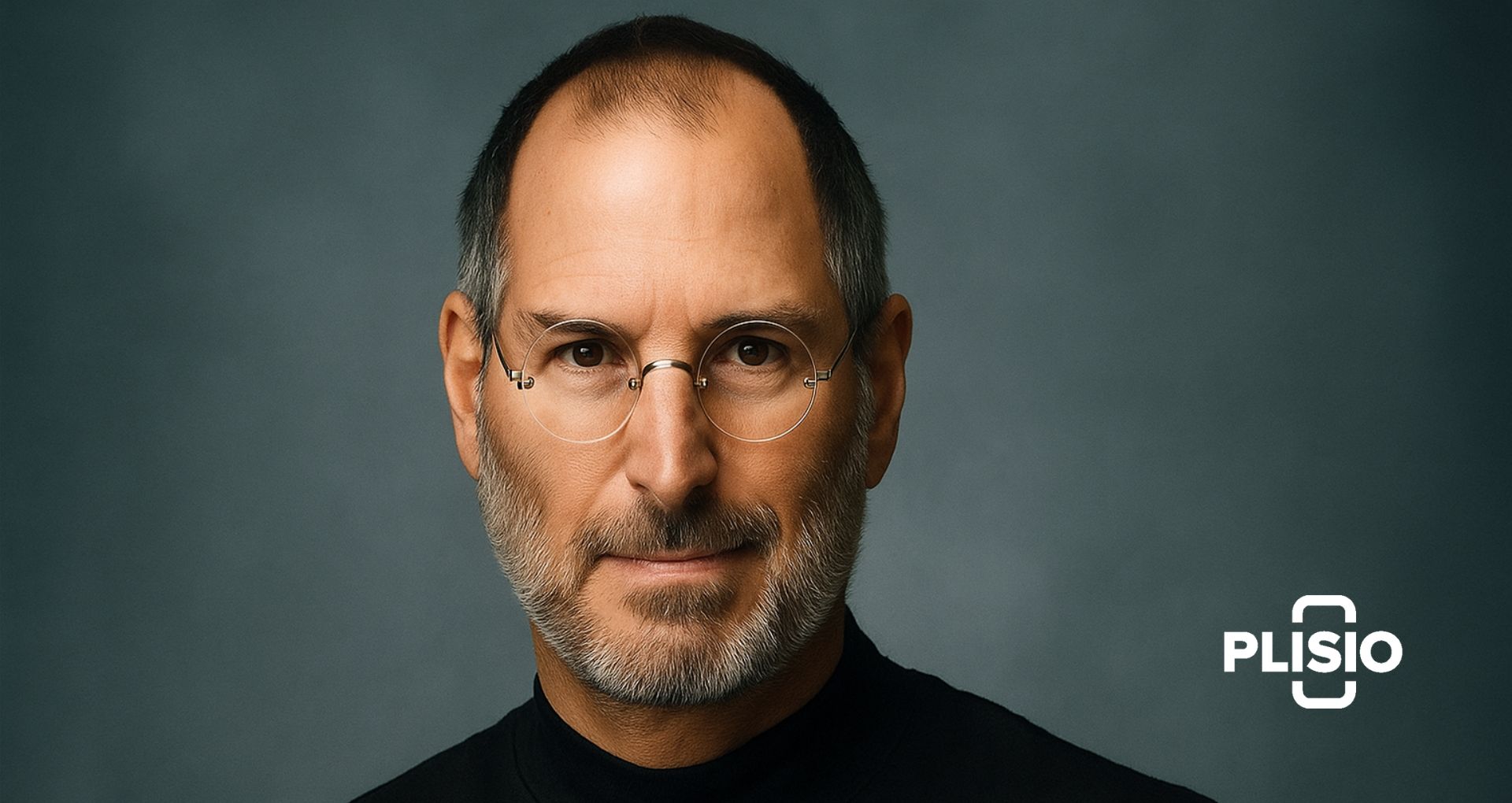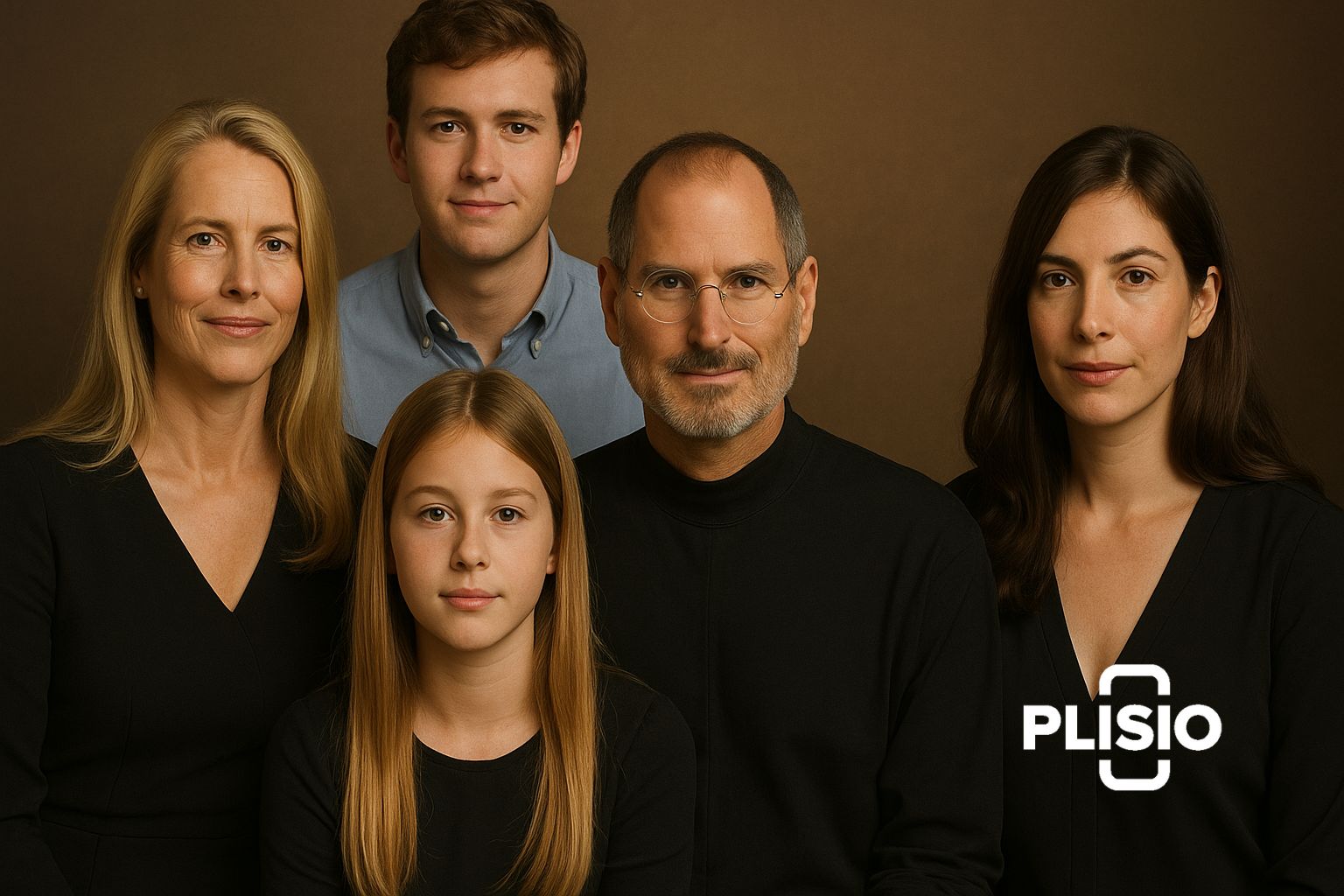Steve Jobs Net Worth: A Legacy That Redefined Wealth in Technology

The brilliant brain behind Apple Computer, Steven Paul Jobs, is a figure whose impact goes beyond business and culture. Even though Steve Jobs passed away in 2011, his wealth and the tale of how it was amassed still fascinate analysts, businesspeople, and fans. Due to his success with Pixar and his ownership of Apple, Jobs had a net worth of approximately US$10.2 billion at the time of his death. That billion-dollar fortune has come to serve as a model for how vision, perseverance, and timing can enable innovators to amass enormous wealth.
Early Life and Founding of Apple Computer
Paul and Clara Jobs adopted Jobs, who was born in 1955. He was ideally situated to investigate electronics because of his upbringing in Silicon Valley. In 1976, Jobs and his friend Steve Wozniak established Apple Computer. A revolution began with their first significant invention, the Apple I computer. Jobs received millions of shares when Apple went public in 1980, marking the start of the cofounder's wealth. Jobs' emotional introduction of the Macintosh in 1984 marked a turning point in the history of technology.
But a significant turning point was brought about by internal strife within Apple's board. In 1985, Jobs was fired from Apple. Jobs took some of the Apple staff and started planning his next project, so this wasn't the end but rather a fresh start.

NeXT, Pixar, and Jobs’ Fortune Beyond Apple
Jobs founded NeXT after leaving Apple, which would play a significant role in the company's eventual acquisition by Apple in the late 1990s. Jobs acquired Lucasfilm's computer graphics division around this time and rebranded it as Pixar. Once underappreciated, this studio's value skyrocketed following hits like Toy Story. Jobs became Disney's biggest individual shareholder after Pixar was acquired by the company. In addition to securing billions, that deal demonstrated Jobs's visionary approach to media and entertainment.
The key financial milestones can be displayed:
- Jobs received millions when Apple went public in 1980.
- When Jobs was fired, he sold millions of Apple shares.
- Pixar became a goldmine after Jobs acquired it.
- Jobs became one of the wealthiest after acquiring Disney.
- Jobs returned to Apple after NeXT was acquired.
Return to Apple and Rise of Apple’s Value
One of the biggest comebacks in business history was symbolized by the phrase "Jobs back." Jobs revived a company on the brink of bankruptcy when he returned as Apple's CEO in 1997. Jobs felt that technology, from the iMac to the iPhone, should be both aesthetically pleasing and useful. His approach changed Apple's fortunes and caused its stock to soar to unprecedented heights.
After his return, Jobs kept his Apple stock, although analysts point out that he once sold it too soon. Jobs would have had an unimaginable net worth in 2025—more than $12.1 billion, if he had kept his original investment in the business. According to analysts, Jobs' net worth would make him not just one of the wealthiest people in Silicon Valley but possibly the richest person in the world. His estate is valued at many times the amount of Jobs' net worth.
Family, Relationships, and Jobs’ Net Worth
Reed, Eve Jobs, Erin, and Lisa Brennan-Jobs were Jobs' four children. Jobs and Lisa's mother, Chrisann Brennan, had a tumultuous relationship, but Lisa later wrote about it. A sizable amount of his fortune was inherited by the Jobs family, with the majority going to his future wife, Laurene Powell Jobs. Laurene is still a major force in business and philanthropy worldwide, guaranteeing that Jobs' wealth will continue to have an impact.
Here is a brief list of important personal relationships:
- His adoptive parents, Clara and Paul Reinhold Jobs
- Wozniak, or just woz and jobs, were best friends.
- Kids included Eve, Erin, Lisa, and Reed
- Laurene Powell Jobs is the widow.

Measuring Apple Cofounder’s Wealth
Jobs' estimated wealth at the time of his death ranged from $7 billion to $7.4 billion, depending on whether one included Disney's holdings or just Apple. According to some reports, at the time of his death, his combined ownership stake in Apple and Disney was closer to $1 billion. As Jobs' estate expanded, estimates of his potential wealth increased even further in 2023 and 2024. Analysts frequently make fortune comparisons, contrasting Jobs' enormous empire with Steve Wozniak's net worth.
|
Year |
Estimated Net Worth |
Key Factor |
|
1980 |
Million in shares after IPO |
Apple went public in 1980 |
|
1996 |
NeXT acquired by Apple |
Jobs returned |
|
2006 |
Disney acquires Pixar |
Stake was worth billions |
|
2011 |
Death in 2011 |
Estate valued at around 7.4 billion |
|
2025 |
Hypothetical |
Jobs would have been worth far beyond 12.1 billion |
Jobs' holdings of Apple stock increased rapidly. Analysts point out that Jobs' executive compensation was minimal given his ownership stake in the business. Jobs' wealth demonstrates how Apple's innovation trajectory enabled him to amass wealth equal to the contributions of millions and millions of people. The question of philosophy still stands: is it appropriate for people to amass enormous wealth? Jobs himself once said, "I've spent my life creating something worthwhile, and I'll do everything in my power to share his fortune in appreciation of his efforts."
Among the reflections are:
- Jobs took chances that would have been impossible for millions of people to duplicate.
- Jobs believed in long-term vision, but occasionally sold too soon.
- While others chased specifications, Jobs chose to concentrate on design and simplicity.
- When no one else saw Pixar's potential, Jobs bought it.
- Jobs gained not only financial success but also notoriety.
Conclusion: Jobs’ Fortune Worth Today
Jobs passed away in 2011, but his legacy lives on. If Jobs had retained his initial investment in the business, he would have outperformed many fortunes. His stake was worth billions of dollars, and Jobs' wealth now would probably be far greater than the million or even billion discussed in 2024. What happens when visionaries create something daring is demonstrated by the Apple I computer and subsequent inventions. Even though Jobs left Apple once and then came back, the company he founded endures. He amassed enormous wealth and left a cultural legacy through his ownership of Apple and Pixar.
In the end, the tale of Steve Jobs' wealth is about more than just money; it's about how one man changed entire industries. His life demonstrates how Jobs came up with the idea to change the world, how he passionately introduced the Macintosh, and how he was fired from Apple but returned stronger. The story of Steve Jobs' net worth serves as a reminder that innovators' real wealth lies not just in their billions but also in their capacity to shape the future.




